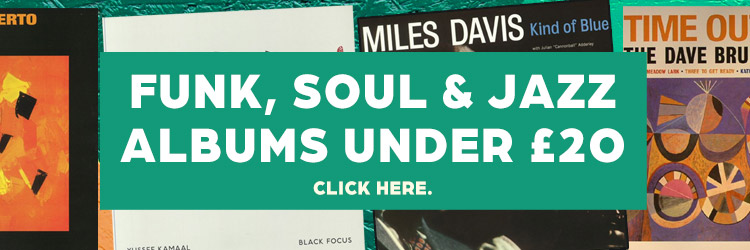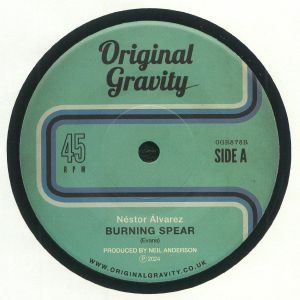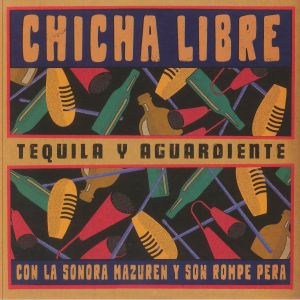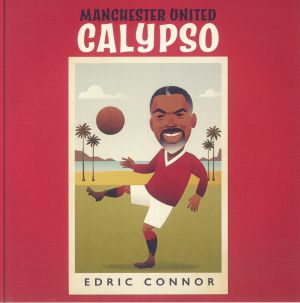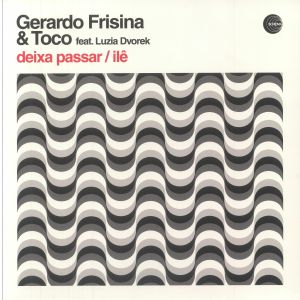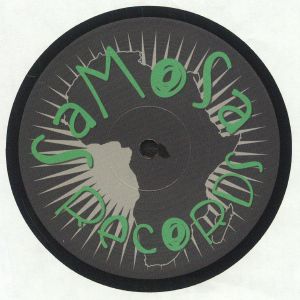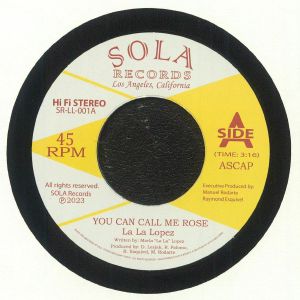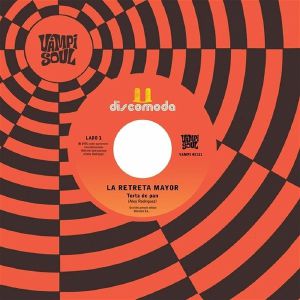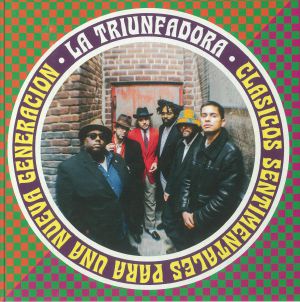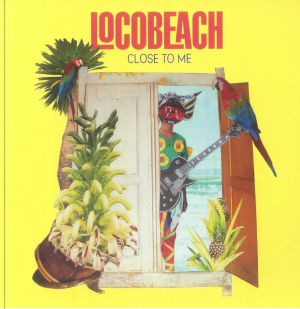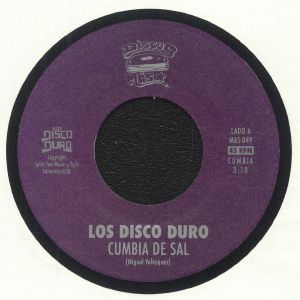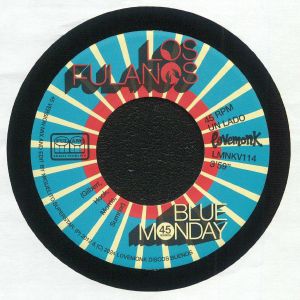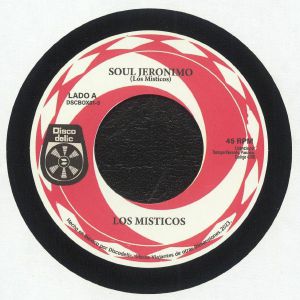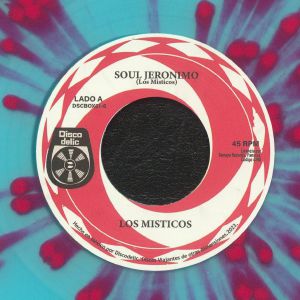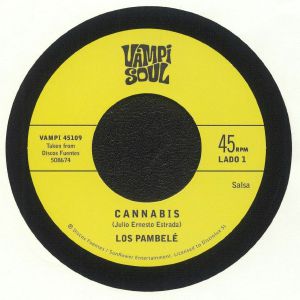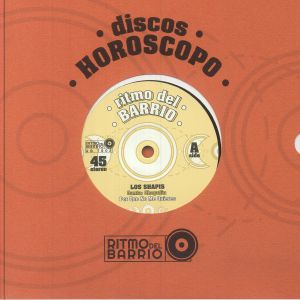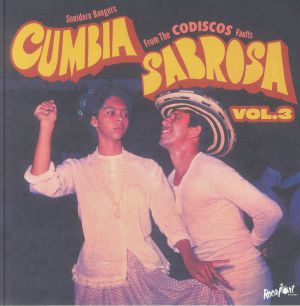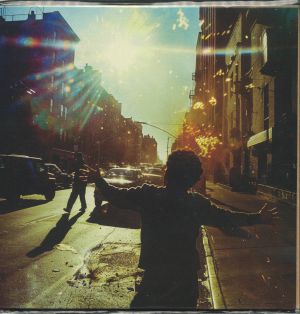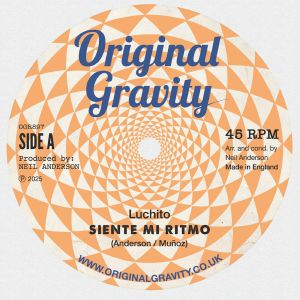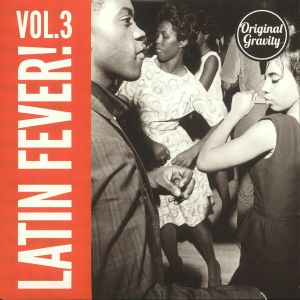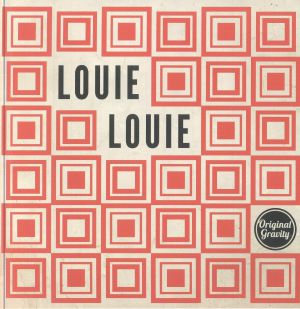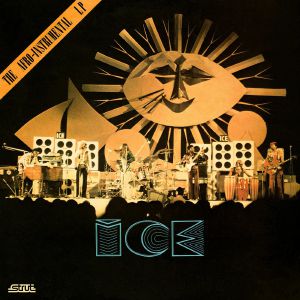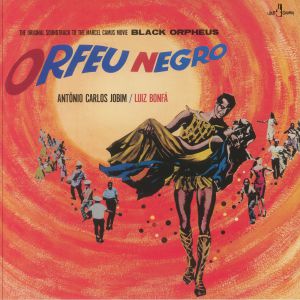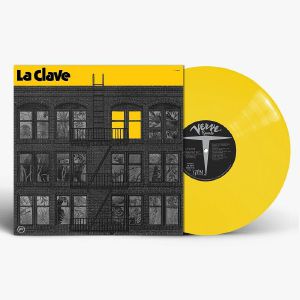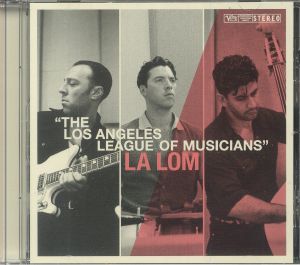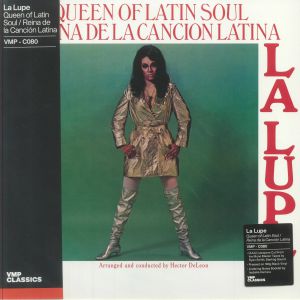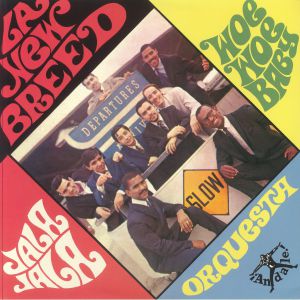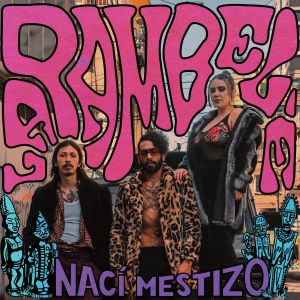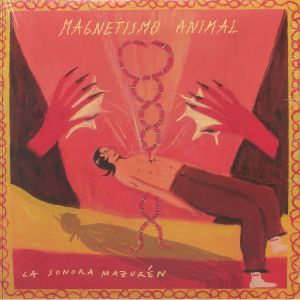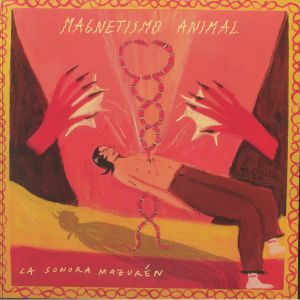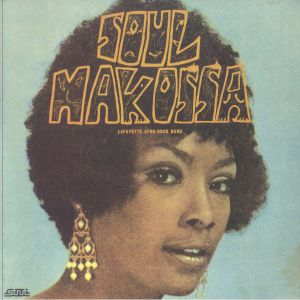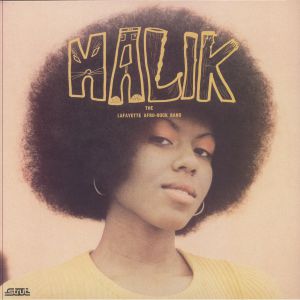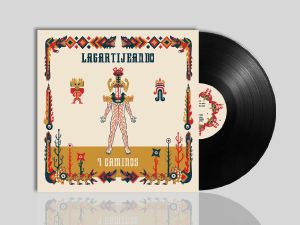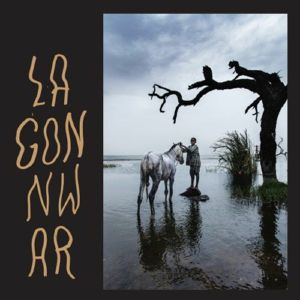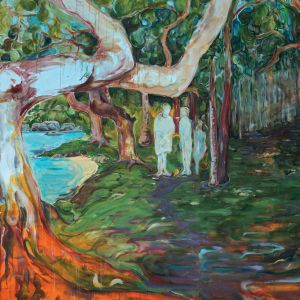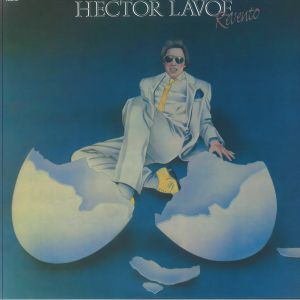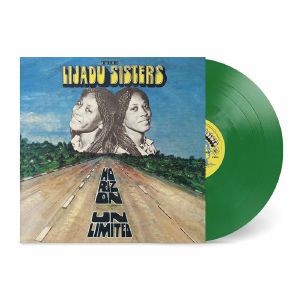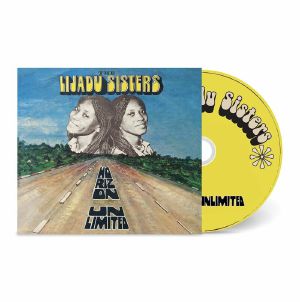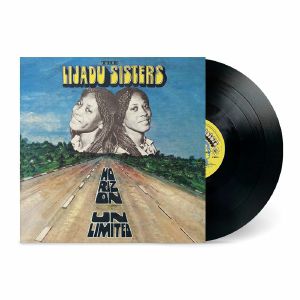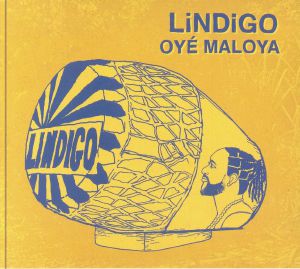Back catalogue: All genres
Juno's full catalogue of All genres
シングル
Cat: OGR 878R. Rel: 15 Jan 25
Funk
Review: This is another reissue of a record that remains an ongoing favourite. Original Gravity delivered again with the original pressing featuring two unique versions of 'Burning Spear'. Nestor Alvarez opens with a lively, Latin-inspired rendition filled with fluttering flute melodies, raw drum beats and vibrant dancing keys that radiate sunny energy. On the flip, La Machine D'Argent takes a more cosmic approach, smoothing the vibe and layering spaced-out sounds for a dreamy, immersive journey. This release showcases Original Gravity's knack for reimagining funk with flair by offering two distinct yet equally good takes on a timeless groove.
… Read morePlayed by: Craig Charles Funk And Soul
in stock $14.13
in stock $24.86
Cat: BEWITH 008SEVEN. Rel: 17 Sep 24
Soul
Review: Edric Connor's 'Manchester United Calypso' is a timeless masterpiece that captures the spirit and joy of football. Originally released 70 years ago, its legacy continues to resonate with fans, heard echoing through the terraces of Old Trafford and beyond. This reissue, featuring Lord Kitchener's 'Manchester Football Double' on the B-Side, is a delightful treat for fans of vintage calypso and Manchester United alike. The 7" vinyl format, coupled with Stan Chow's stunning artwork, makes it a real treat. With its soulful and uplifting vibes, 'Manchester United Calypso' is not just a song; it's a celebration of football and the enduring spirit of one of the world's most iconic clubs.
… Read morePlayed by: Juno Recommends Soul
in stock $17.24
Review: Five years on from their debut collaborative EP 'Frisina Meets Toco', modern Brasilian dance artists Gerardo Frisina and Toco return for a second faceoff, this time with liaising artist Luzia Dvorek serving as ringmaster. Centring on samba-infused jazz and deep house with mystical and folk influences, "deixa passar" translates from Portuguese to "let it pass", though the mood is certainly not outright passive. This delectably quartered slice of carnivalesque dance music is rather rich in sonic papaya juice, charting sustained vocal contrasts between Toco and Luzia against smoky and furnaced beats. Aperient track 'Deixa Passar' leans heaviest on languid piano, whilst dozier mists emerge on the B-side in the form of 'Ile' and its rework by Gerardo Frisina, bringing pan flutes, strings, breathy vocal counterpoints, cabasa shaker, and subtle bass undercurrents.
… Read more in stock $17.81
Review: Samosa Records returns with Afrikano Vol. 3 which is a lovely Afro-themed, genre-blending EP featuring four standout tracks from trusted artists. Kicking things off is Vincent Galgo's 'African Rebel,' a 125bpm fusion of horns, driving rhythms, and Afro-pop bass. Frank Virgilio follows with 'Mistress,' a jazz-infused mid-tempo groover, packed with guitar riffs, organ stabs, and hypnotic bongos. Newcomer Casper Leo delivers 'Tom Tom,' a tribal delight featuring Kora guitar and melodic Marimba. Closing the EP is Lego Edit's 'El Safari,' a sultry Afrobeat banger that grabs hold and doesn't let go.
… Read morePlayed by: Craig Charles Funk And Soul, LEGO EDIT
in stock $15.54
Review: La La Lopez's debut single, 'You Can Call Me Rose,' marks her impressive entry on SOLA Records, offering a soulful, modern r&b response to Thee Sacred Souls' classic 'Can I Call You Rose.' Hailing from Albuquerque, New Mexico, La La brings her unique blend of influences, from Mariachi and Rancheras to Soul and oldies, creating a sound that transcends borders. Recorded at SOLA Studios in Los Angeles and OLAH Producciones in Veracruz, this record shows her versatility. On Side-1, 'You Can Call Me Rose,' exudes soulful warmth, while the flip side, 'Deny,' is a vibrant Latin Pop track with English lyrics and rich Latin percussion, perfect for the dance floor. La La's music resonates deeply with her life experiences, a quality evident in her past works and future releases with SOLA Records. 'You Can Call Me Rose' has already garnered praise across generational audiences, affirming La La Lopez as a musical force to watch. Now available on 7" vinyl!
… Read morePlayed by: Juno Recommends Soul
in stock $18.93
in stock $13.85
Cat: NYCT 7090. Rel: 18 Jul 24
Soul
Review: The Cuban boleros of the 1950s and Nuyorican street soul of the 1960s always embodied a timeless Caribbean romanticism in the midst of New York City's urban landscape. La Triunfadora's debut album captures this sense of revival with experimental, psychedelic arrangements that revitalise classic tunes with fresh interpretations. Their debut 7-inch on Names You Can Trust honours Cuban bolero maestro Cesar Portillo De La Luz with lush orchestration and vocals by Candace Camacho and Benjamin R. Julia. The B-side reimagines Ralfi Pagan's 1969 Latin soul gem 'Hijo De Mama' by blending analogue warmth with a modern twist.
… Read more in stock $21.75
The Forgotten Edge (B-STOCK) (12" + MP3 download code)
Cat: JAG 392LP (B-STOCK). Rel: 01 Jan 90
International
B-STOCK: Sleeve damaged but otherwise in excellent condition
in stock $13.98
Review: Some six years (give or take a few months) on from the release of their superb debut album Psychedelic Disco Cumbia, self-styled 'NYC tropical supergroup' Locobeach are back! This time round, they've treated us to a genuine rarity: a rarely spotted double seven-inch EP. All four tracks have, apparently, been extensively road-tested in their live sets and become, in their words, "fan favourites". They begin in stellar fashion via a head-nodding, cumbia-powered cover of Cure classic 'Close To You' (it's genuinely great - one of the best covers we've heard for a while), before imagining a suitably tropical spy chase on the urgent and percussion-rich 'Idea Desesperada'. On 45 number two you'll find the cheeky cumbia-soul-meets-yacht-rock cheekiness of 'Isabella' and the surf-flecked, high-octane tropical fun of 'U.S Marshall'.
… Read morePlayed by: LEGO EDIT
in stock $29.67
Review: Discos Mas kicks off their New Year with a vibrant Los Disco Duro version of the iconic 'Cumbia de Sal'. this top take blends the famous Moog cover with the original 60s version for some super fresh results. Featuring vocoder vocals, brilliantly resonant synths and funky drums, this unique cut enhances the classic cumbia beat with all-new energy. The release also includes a double A-side with a cover of 'Mexico' by the wonderful Mexican Institute of Sound. Camilo Lara's original composition is reimagined with signature Los Disco Duro elements such as vocoder vocals, synths and cumbia percussion, all of which add up to a refreshing mix of modern and traditional rhythms, nostalgia and innovation.
… Read morePlayed by: Voodoocuts
in stock $17.81
Review: Miguelito Superstar, co-producer of the acclaimed debut album Si Esto Se Acaba, Que Siga El Boogaloo, delivers pure fire with two electrifying versions on this 7" release. 'Why Don't We Do Some Boogaloo?' emerges as a local classic, while the Latin Funk rendition of New Order's iconic 'Blue Monday' transforms the track into a powerhouse of groove. With special attention to unearthed breaks and a spotlight on the rhythm section, Miguelito elevates both tracks to must-have status for aficionados of Latin music and funk. Miguelito's power in crafting infectious rhythms and breathing new life into familiar classics is on full display here!
… Read more in stock $12.15
Review: Discodelic and Groovie Records unveil a pair of rare 1970s Panamanian gems here with forgotten tracks from The Meditators, and Los Misticos. Originally recorded for radio and left in storage, these Latin psych funk bombs capture the underground spirit of Panama's vibrant music scene from more than 50 years ago. Licensed through Tamayo Records, these songs have been beautifully mastered and now the long-lost recordings, which barely made it to vinyl the first time around, become available for all who are keen to drop the heat and learn about Panama's hidden musical treasures at the same time.
… Read morePlayed by: Mukatsuku Records Chart
in stock $22.59
Soul Jeronimo (blue & pinksplattered vinyl 7" limited to 100 copies)
Cat: DSCBOX 1 5 COLOUR. Rel: 08 Oct 24
Funk
Review: These two rare 1970s Panamanian gems are long-forgotten tracks from The Meditators and Los Misticos that now get pressed up to a very colourful 7", though we also have a plain black version. These Latin psych-funk recordings were created for radio but were stored away for many years and now listening back they offer a glimpse into the vibrant, underground scene of Panama. Beautifully remastered and licensed through Tamayo Records, these rediscovered songs are now available after originally being pressed in extremely limited quantities. These tracks provide a unique chance for listeners to experience Panama's hidden musical treasures while adding some heat to any collection.
… Read more in stock $25.98
Review: This forthcoming 7" pairs two fiery cuts from the Latin American underground, capturing the raw energy of a transformative musical era. Los Pambele's 'Cannabis' layers cumbia rhythms with swirling, reverb-soaked guitars, creating a trance-inducing groove that feels both earthy and psychedelic. On the flip, Los Darlings de Huanuco's 'Marihuana' cranks up the intensity, delivering a garage-tinged anthem brimming with jagged riffs and spirited vocals. The sound is unpolished yet electrifying, a snapshot of a time when regional traditions collided with bold experimentation, leaving behind something truly timeless.
… Read morePlayed by: Voodoocuts
in stock $13.85
in stock $16.38
LOS TROTAMUNDOS / LOS ASES DEL RITMO / ANICETO MOLINA Y SU CONJUNTO / CATALINO Y SU COMBO NEGRO / LOS HERMANOS MARTELO / LA PESADA
Cat: ROC 057. Rel: 28 Nov 24
International
Review: The third instalment in the 'Cumbia Sabrosa' series delves into the rich archives of Colombia's Codiscos label, unearthing a selection of tracks that exemplify the vibrant energy of cumbia. Artists such as Los Trotamundos, Aniceto Molina y su Conjunto, and Los Hermanos Martelo contribute to a compilation that seamlessly blends traditional rhythms with the dynamic flair characteristic of the sonidero scene. Each track offers a unique glimpse into the musical landscape of the era, highlighting the enduring appeal of cumbia's infectious beats.
… Read more in stock $27.98
Played by: Craig Charles Funk And Soul, ISOUL8 (Volcov)
in stock $12.42
Played by: Juno Recommends Jazz, DJ ROCCA
in stock $14.13
Review: Continuing their mission to retrouve genres across the spectrums of Latin funk and cumbia, Original Gravity welcome back founding favourites Luchito and Nestor Alvarez with yet another sonic vitamin D pill, presaging the warmer days to soon come. Both sides tap into that rich 60s and 70s Afro-Carib crossover sound, with, at least on the face of it, no studio trickery in earshot (though careful listens reveal the method behind the majesty). Anyone with a weakness for brass-led Latin burner will melt on contact with this one.
… Read more in stock $12.72
Review: Latin Fever Vol. 3 offers a vibrant collection of tracks from Luchito & Nestor, as well as solo efforts by Nestor Alvarez (a.k.a. Neil Anderson). Luchito & Nestor's rendition of The Olympics' 'Good Lovin' kicks things off with a blistering Latin boogaloo twist, featuring infectious rhythms and lively brass. The instrumental Part 2 replaces lead vocals with a dynamic flute topline, adding a fresh layer to the classic hit. On the flip side, Nestor Alvarez's 'La Gordita Americana' is an uptempo boogaloo groover led by horns and piano, delivering an energetic and danceable vibe. The collection concludes with 'Ixo's Taxi,' a skeletal xylophone-led funk track that brings a unique, nostalgic charm. Each track on this release has a rich blend of Latin rhythms and boogaloo energy, making this an exciting 7" to hit the dancefloor to.
… Read more in stock $17.52
in stock $17.52
Review: We're excited by this fresh repress from the fine folks at PVine because it brings back to life an iconic cut from the widely beloved Hawaiian AOR album Lui. This classic gentle sound is also known for its stunning artwork and has long been a fav of collectors and diggers. Alongside 'Oh, Oh (I Think I'm Fallin' In Love)' on the A-side, you can find 'My Lover' on the flip and it is another showcase of the smooth, mellow grooves that appeal to free soul and AOR enthusiasts. These two timeless and once 'contemporary Hawaiian' songs from the 70s feature plenty of local musicians and have subtle influence from the US West Coast sound.
… Read more in stock $18.93
Review: Belgian-Bolivian musician Susobrino delivers his debut EP 'NO', titling itself after a primal negation, and forged in the interplay of traditional South American percussion music with electronica. As if to curb his habit of collecting an (perhaps over-) abundance of percussion instruments, 'NO' hears Susobrino set a stark limit for both himself and the listener, bringing just three curt tracks to wax following a live-changing tour of his ancestral South America. Honorific of the traditions of SA percussive music, Susobrino nonetheless intones: "Mixing acoustic instruments and field recordings with electronics with the music software Ableton was my cocktail from the beginning". The result is a widescreen demo of ascendant percy jawns, equally suited for the curio club-goer as it is for the Bolivian folklorico fanatic.
… Read morePlayed by: Juno Recommends International
in stock $15.54
アルバム
in stock $35.03
Cat: STRUT 345LP. Rel: 01 May 25
Funk
Review: Popularly known to fans as "Ice" - a rare case of hypocorism in colloquial fan band nicknaming - Strut Recordings document a rare record from the vaults of the luminary Lafayette Afro-Rock Band, one that is arguably the closest in their catalogue to the signature sound defining their earlier work. Marked by an especially complex funk rhythmology, this record was pressed contemporaneously with the infamous Soul Makossa and Malik sessions; but compared to their earlier works, Afro Agban pushes deeper into jazz-rock territory. 'Ozan Koukle' has espceially become a known but coveted missing link for turntable taxonomists, who'll thank their lucky stars for the fact that it is now available in full.
… Read morePlayed by: Mukatsuku Records Chart, Craig Charles Funk And Soul
in stock $23.72
in stock $18.93
La Clave (Verve By Request) (180 gram audiophile yellow vinyl LP)
Cat: 602455 624383. Rel: 16 Jan 25
Jazz
Review: La Clave's self-titled album from 1973 is a refreshing mix of Latin rhythms and the vibrant sounds of the city of San Francisco. Formed by nine musicians from Mexico, Panama, Cuba and Puerto Rico with Benny Velarde at the helm, the group blended their rich cultural backgrounds with the soulful and experimental music scene of the Bay Area during that period. This unique mix created a joyful, energetic sound that still lures you in to this day, which is why this mini-classic gets reissued as part of the Verve By Request series.
… Read morePlayed by: Craig Charles Funk And Soul
in stock $42.93
Played by: Juno Recommends International
in stock $32.49
in stock $14.69
Cat: VMP 1185. Rel: 16 Jan 25
International
in stock $35.88
Cat: AND 5918. Rel: 07 Jun 24
International
in stock $33.89
Review: La Pambele, Bogota's salsa dura ensemble, distills the spirit of 1970s salsa while threading modern-day stories through every track. Their energetic and heartfelt music is a celebration of the culture that's so intrinsic to their city, blending bold rhythms with lyrics that hit close to home. In a city often perceived as less rhythmically charged than the coastal regions, the band defies the stereotype, delivering tracks like 'Para No Olvidar' and 'La Bella Y La Culebra' that pulse with energy and authenticity. 'Naci Mestizo', the album's title track, sees La Pambele collaborate with the seasoned Afro-Colombian folklorist Nicoyembe, adding layers of cultural depth and richness that further root the sound in Colombian heritage. The mix of piano, conga, flute, and brass on songs like 'Amargura' and 'Son Cimarron' carries a nostalgic yet forward-thinking energy, embracing the past while pushing boundaries. There's a warmth and precision in the way the orchestra weaves traditional salsa with contemporary expressions, effortlessly moving between nostalgia and modern relevance, all while telling the story of the everyday Bogotano in its boldest form.
… Read more in stock $42.66
Review: La Sonora Mazuren, a vibrant force in Bogota's indie-tropical scene, infuses classic South American rhythms with a modern twist. Drawing on cumbia, chicha, guaracha, and champeta from Ecuador, Colombia, and Peru, the band skillfully merges traditional sounds with synthesisers and electric guitars. Their approach, guided by early innovators like Polibio Mayorga and Eblis Alvarez of Meridian Brothers, creates a psychedelic and forward-thinking blend reminiscent of Tropicalia's golden era. Their latest release, Magnetismo Animal, continues this innovative path. Recorded partly in rural Normandy during a European tour and finished in Bogota, the album explores the concept of animal magnetism as introduced by Franz Mesmer. Each track channels a shared trance-like energy through intricate rhythms and sound experiments. Drawing inspiration from Colombian gaita, vallenato, and cumbia, alongside Peruvian huayno and chicha, the album presents a futuristic take on Afro-Andean traditions with pulsating polyrhythms and psychedelic textures. Featuring members of Romperayo and LA PERLA, La Sonora Mazuren exemplifies Bogota's dynamic new tropical movement, merging past and present in a unique musical journey.
… Read morePlayed by: Juno Recommends International
in stock $32.21
in stock $31.08
Review: Strut proudly presents the first official remastered reissue of Lafayette Afro Rock Band's funk/Afro classic, Soul Makossa from 1973. Originally known as the Bobby Boyd Congress, the seven-member Afro-American ensemble relocated from the U.S. to France in 1971. After lead singer Bobby Boyd returned to the US, the group rebranded as Ice and collaborated with producer Pierre Jaubert, whose credits included work with Charles Mingus and John Lee Hooker. Inspired by Motown's work ethic, Jaubert initiated daily rehearsals, leading to the band's unique sound. Immersed in Paris's African-dominated Barbesse district and frequently performing with Cameroonian composer Manu Dibango, the group evolved into Lafayette Afro Rock Band, embracing a heavier, more intricate Afro-funk style. Their debut album, Soul Makossa, featured a dynamic rendition of Dibango's classic, alongside the intense break of 'Hihache' and the infectious 'Nicky.' This meticulously crafted remaster by The Carvery from the original tapes includes the full original artwork, celebrating an iconic album's legacy.
… Read morePlayed by: Juno Recommends Funky House, Juno Recommends Funk
in stock $25.14
Review: Strut proudly presents the first official remastered reissue of Lafayette Afro Rock Band's elusive funk/Afro original album, 'Malik,' originally released in 1974, on Limited Edition coloured vinyl. In 1971, the seven-member Afro-American ensemble, initially known as the Bobby Boyd Congress, moved from the U.S. to France. Bandleader Frank Abel recalls, With lead singer Bobby Boyd's return to the US, the group rebranded as Ice and collaborated with independent producer Pierre Jaubert, who had worked with legends like Charles Mingus and Archie Shepp. Inspired by Motown's work ethic, Jaubert initiated regular rehearsals with Ice. The band, immersed in Paris's African-dominated Barbes district, began infusing African elements into their music, often performing with Cameroonian composer Manu Dibango. As the Lafayette Afro Rock Band, they shifted to predominantly instrumental compositions with a dense Afro-funk sound. Their debut as Lafayette included 'Soul Makossa' and the impactful break in 'Hihache.' A year later, 'Malik' refined their sound with tracks like the percussive 'Conga,' atmospheric 'Djungi,' and robust 'Darkest Light.' Though initially limited in impact, 'Malik' gained appreciation as hip-hop culture flourished in the 80s, becoming a rich source of samples. This remastered reissue, crafted by The Carvery from the original tapes, has the full album and original artwork.
… Read morePlayed by: Juno Recommends Funky House, Juno Recommends Funk
in stock $27.11
Review: Mexican singer-songwriter Natalia Lafourcade shared her tenth album De Todas Las Flores in 2022, drawing influence from a variety of folk and Latin jazz genres including bolero, cumbia, bossa nova, samba and son jarocho. Her first project of completely original material in seven years, since her fifth studio record Hasta La Raiz, the album was produced by French-Mexican musician Adan Jodorowsky, Lafourcade's former neighbour and multi-talent in his own right. A rare case of a "musical diary" among Lafourcade's catalogue, the album was a bittersweet, romantic jaunt from the get-go, dealing in themes of grief both thematically and formally: it was recorded entirely on analog tape in an El Paso exurb, not far, yet still a comforting ways away, from her home municipality of Veracruz, Mexico.
… Read morePlayed by: Juno Recommends International
! low stock $38.99
Review: Mati Zundel aka. Lagartijeando has been releasing cumbia-esque, Andean influenced dance music since 2010, though it's only in more recent years that the artist has rerouted his craft to LPs, of which this latest record is the fourth. With "camino" translating from Spanish to mean "path" or "way" - the word often carries a spiritual meaning - Zundel here aims to emphasise the many sprouting, vicissitudinous paths down which life may thrust us, despite the ever-present illusion of choice. After moving to Chula, Mexico, the artist drew inspiration from the landscapes and cultures of the northern tip of Latin America, reflecting local intrigues and mountainous mysteries. Armed with regional instruments, such as Andean winds and charango, Lagartijeando produces such danceable dazzlements as 'Cholula' and 'Que Lindo Sale La Luna', which stand out as the most heated songs here, their stylistic range offering a sense of the many choices that remain open to us.
… Read more in stock $24.30
Review: Lagartijeando is a key figure in the alt-Latin electronic scene alongside the likes of Nicola Cruz and Chancha Via Circuito. He makes an essential return here with 7 Caminos, a fourth career long player with Wonderwheel. Recorded between Cholula, Mexico and Tarapoto in Peru, it transports you in double quick time to the South American jungle and Mexican Altiplano volcanoes. Sunny melodies take flight over shuffling rhythms, dubby basslines unfurl like flowers at dawn and intimate vocal whispers bring a human touch to the rhythms. A gorgeous soundtrack to a perfect afternoon of escapism.
… Read more in stock $22.59
in stock $25.71
Played by: Juno Recommends International
in stock $32.21
Review: The Spanish word "reventar" means to burst, and Hector Lavoe did just that on the salsa scene with his 1985 album Revento. Known as "El Cantante de los Cantantes" (or 'The Singer of All Singers'), Lavoe had been making waves since his 1967 debut with Willie Colon on 'El Malo.' Revento, which came following the success his 1983 album Vigilante, was Lavoe's striking response to salsa's decline in the face of merengue and romantic ballads. He returned to Colon's trombone sound and collaborated with old friends like Milton Cardona and Jose Mangual and the album, which is packed with diverse rhythms and evocative themes, cemented Lavoe's reputation as one of salsa's most versatile and multifaceted artists as well as extending his influence across the Americas.
… Read morePlayed by: Juno Recommends International
in stock $37.58
Dez Anos Depois (reissue) (gatefold 180 gram audiophile vinyl 2xLP)
Cat: MOVLP 3817. Rel: 04 Feb 25
Jazz
Review: Nara Leao takes a reflective journey through her musical career with this stunning double album, originally released in 1971. Recorded in both Paris and Rio de Janeiro, it's an intimate collection of reinterpreted classics, showcasing Leao's gentle yet emotionally powerful vocals. The album features timeless tracks like 'Chega de Saudade', 'O Barquinho', and 'Corcovado', each stripped back to its essence with minimalist acoustic arrangements. Leao's voice shines throughout, capturing the nuances of these beloved songs with a delicate touch and heartfelt sincerity. The involvement of guitarist Tuca, known for her work with Francoise Hardy, adds another layer of depth to the recordings, her playing complementing Leao's vocals with sensitivity and grace.
… Read morePlayed by: Juno Recommends Jazz
in stock $42.09
Review: Wewantsounds continues its deep dive into Algerian music with the first-ever reissue of Les Abranis' sought-after-by-those-who-know 1983 long player, Album No. 1. Originally recorded in Paris and privately pressed in small quantities, the album, which is also known as Id Ed Was, fuses Kabyle rhythms with funk and touches of reggae. This reissue has been curated by Cheb Gero (of recent Sweet Rebels compiling fame) and features remastered audio, though it retains the original artwork. It's a great line document of Algeria's diasporic groove with a two-page insert featuring fresh liner notes by journalist Rabah Mezouane.
… Read morePlayed by: Ex-Friendly (Truth & Lies Music)
in stock $37.01
Review: The Lijadu Sisters and Numero Group have entered into a groundbreaking partnership focused on both reissue and reparation as a way of celebrating and reexamining the impact of the iconic artists. Identical twins Yeye Taiwo and the late Kehinde Lijadu were pioneers in Nigeria's cultural golden age who released five influential albums in the 1970s, thereby helping to shape their home nation's music for over 50 years. Their unique harmonies and innovative sound have inspired artists like David Byrne, Amaarae, and Jamie xx and first up in the reissue series is a remastered edition of their 1979 album Horizon Unlimited, featuring the hit 'Come On Home,' with their entire discography and previously unreleased material all to follow.
… Read morePlayed by: Juno Recommends International
in stock $30.50
Played by: Juno Recommends International
in stock $14.13
Review: Released in 1979 on Decca's Afrodisia imprint, Horizon Unlimited stands as a landmark in the Lijadu Sisters' discography. Produced by Fela Kuti's collaborator Odion Iruoje, and featuring BLO's Laolu Akins and Lemmy Jackson, this album blends raw funk with seductive electricity. The six tracks on this reissue are a masterclass in merging traditional rhythms with modern funk, exemplified in songs like 'Orere-Elejigbo,' 'Erora,' and 'Come On Home.' Each track opens with talking drums, weaving intricate percussion with fluid basslines and subtle synth tones. The Lijadu Sisters' harmonies remain the focal point, gliding over hypnotic grooves that maintain their freshness without becoming repetitive.
… Read more in stock $28.82
Played by: Juno Recommends International
in stock $16.67
in stock $54.23

 USD
USD





